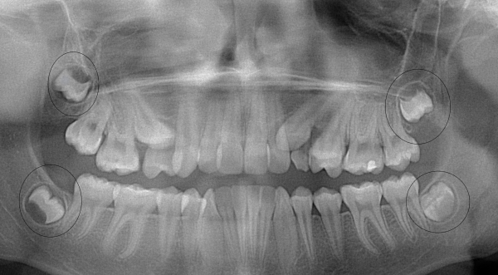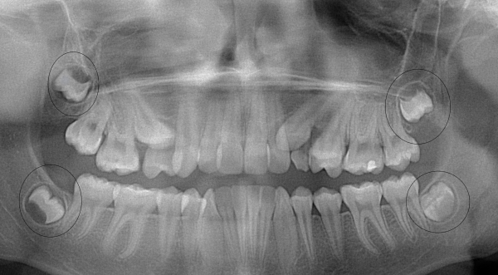All About Wisdom Teeth and Wisdom Tooth Extractions


The majority of people need to have their wisdom teeth removed at some point or other during their lifetime.
The presence of wisdom teeth in the mouth can be advantageous or life-threatening, depending on their positioning and condition. The wisdom teeth are also referred to as the third or last molars. They typically begin to emerge in the back of the mouth on both sides of the jaws during the ages of 16 to 20. Most individuals will have four wisdom teeth, one on each upper and lower corner of the mouth.

When wisdom teeth are healthy, they pose no real threat to your overall oral health. However, it your wisdom teeth become infected, it can lead to additional damage in your mouth, affecting the gums and/or teeth in the vicinity of your wisdom teeth. This sad state of affairs is most likely to occur due to improper oral care.
Many people have trouble reaching and cleaning their wisdom teeth because of their location in the mouth. If the wisdom teeth are not properly brushed and flossed, the presence of plaque and calculus can lead to unnecessary infection, resulting in periodontal disease and tooth decay. If left untreated, both of these conditions can lead to serious health complications.
Wisdom Tooth Extraction
When your wisdom teeth do not come in properly, it becomes necessary to have them extracted. In most cases like this, the wisdom teeth either come in crooked or they do not have enough room to come in fully. If the jaw cannot accommodate the wisdom teeth, they usually become impacted, which means they are never going to come in fully. The teeth might emerge partially through the gums, grow in sideways or crooked. The major portion of the wisdom tooth might also remain beneath the gum line, where it stays trapped in the bone.
When this happens, the rest of the teeth in your mouth may change in position. When this type of damage occurs, it often becomes necessary to get braces in order to realign the teeth properly. As a result, the decision not to have your wisdom teeth removed creates the need for an even more costly dental procedure.
Causes of Wisdom Tooth Extraction
The most common causes of wisdom tooth extraction include:
- Insufficient space for them to grow in properly
- Gum disease due to lack of proper oral care or inability to provide proper care
- Tooth decay due to lack of proper oral care or inability to provide proper care
The Wisdom Tooth Extraction Procedure
Today, wisdom tooth extraction is a common procedure that has gained the status of being considered a routine dental strategy. This is because many individuals have insufficient room in their mouths to accommodate the growth of the last molars to emerge. Typically, a panoramic set of x-rays is taken to determine the exact positioning of the teeth as well as the severity of impaction.
In most cases, sedation therapy is used and the patient is put to sleep during the procedure. In some situations, the patient’s condition may merit the use of local anesthesia only for removal of the molars. Once the extraction has taken place, the patient is monitored to ensure that bleeding has slowed down sufficiently or stopped completely. Clean gauze is applied to the openings where the teeth used to exist to help stop the bleeding. Some swelling may occur over the next few days, but it can be alleviated with the use of cold compresses. Any pain that occurs should subside over the next few days and can usually be alleviated with over-the-counter pain management medication.
Cost of Wisdom Tooth Extraction
The cost of wisdom teeth extraction varies greatly, depending on the number of teeth you are having extracted as well as the degree of impaction that exists. There’s the cost of x-rays, anesthesia, IV-sedation, the extraction process, antibiotics, and the follow-up exam. If you have been told by your dentist that your wisdom teeth need to be removed you should have them extracted sooner rather than later. By waiting you risk infection pain and a could need a more complicated procedure to remove them.



